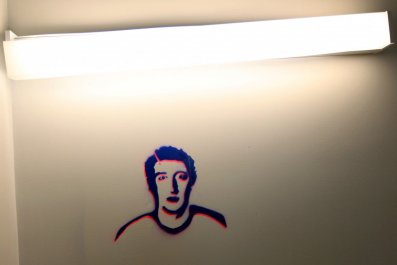Ever heard of Dr. Richard Saul? Don't be embarrassed to say 'no' - most people don't know the name. But that'll change after the release this month of his new book, ADHD Does Not Exist.
After 50 years of treating thousands of ADHD patients, Saul, a behavioral neurologist, declares that not one of those people had ADHD. Instead, he argues, they were presenting a cluster of symptoms stemming from 20 other conditions and disorders ranging from poor eyesight to bipolar disorder to giftedness.
He says ADHD does not exist - and never did. That has made a few of his colleagues apoplectic. "The book is a travesty of ignorance about and propaganda against ADHD, a disorder which has more than 10,000 articles in science journals attesting to its validity and numerous adverse effects on people's lives," says Russell Barkley, author of six ADHD-related books and a recognized international ADHD expert.
Dr. Edward Hallowell, New York Times best-selling author of Driven to Distraction, and a recognized authority in the field of ADHD, agrees: "No responsible scientific authority says ADHD does not exist. Saul is blatantly misleading people to sell his book."
The lack of controversy among the experts is telling, but it's an entirely different story online. Comments and debates can spiral out of control quickly, leading to the spread of misinformation. This has already started on blogs and websites covering the book release. Some commenters claim ADHD can be "cured" by better parenting or that it's not a disorder, just a lack of discipline.
"It's so important for the public to understand that on the Internet anyone can be an 'expert,' " says Gina Pera, author of Is It You, Me, or Adult A.D.D.? and an ADHD advocate. "The real experts in ADHD are busy researching, writing papers, and treating patients, so they don't spend time on the Internet writing or commenting. Readers who limit themselves to websites, without knowing how to discern wheat from chaff, do themselves a great disservice."
"My problem with the book is its title," says Dr. Hallowell. "It's what publishers call a 'selling title,' designed to get people to buy books." But he adds that he agrees with some of the book's claims. "Dr. Saul does make a valid and important point in his book, a point that the title unfortunately buries. He is alerting people to the fact that many different causes may lead to many of the symptoms summarized in the diagnostic shorthand term ADHD.
"That's why a careful diagnostic workup is so important. I commend Dr. Saul for pointing this out in his book. A more accurate title, though not nearly as selling, might have been 'ADHD Is Not Always What It Seems to Be.'"
The title is a bold statement - one meant to rile up the masses - and it has done just that. There has been extensive media coverage around the world. Most outlets used the book's title as their headline, implying that the premise is not only well-researched but also a generally accepted hypothesis. Neither is correct.
"To question that this disorder exists at all flies in the face of many hundreds of scientific studies that demonstrate differences in the timing of brain maturation, in the brain mass and in the levels of neurotransmitters," says Ruth Hughes, chief executive of CHADD (Children and Adults With ADHD). "ADHD is a real medical disorder, with real brain differences.
"Worse, this book adds to the stigma of ADHD and hinders the diagnosis and treatment of thousands of people who legitimately do have ADHD, and whose lives would be significantly improved with treatment."


























